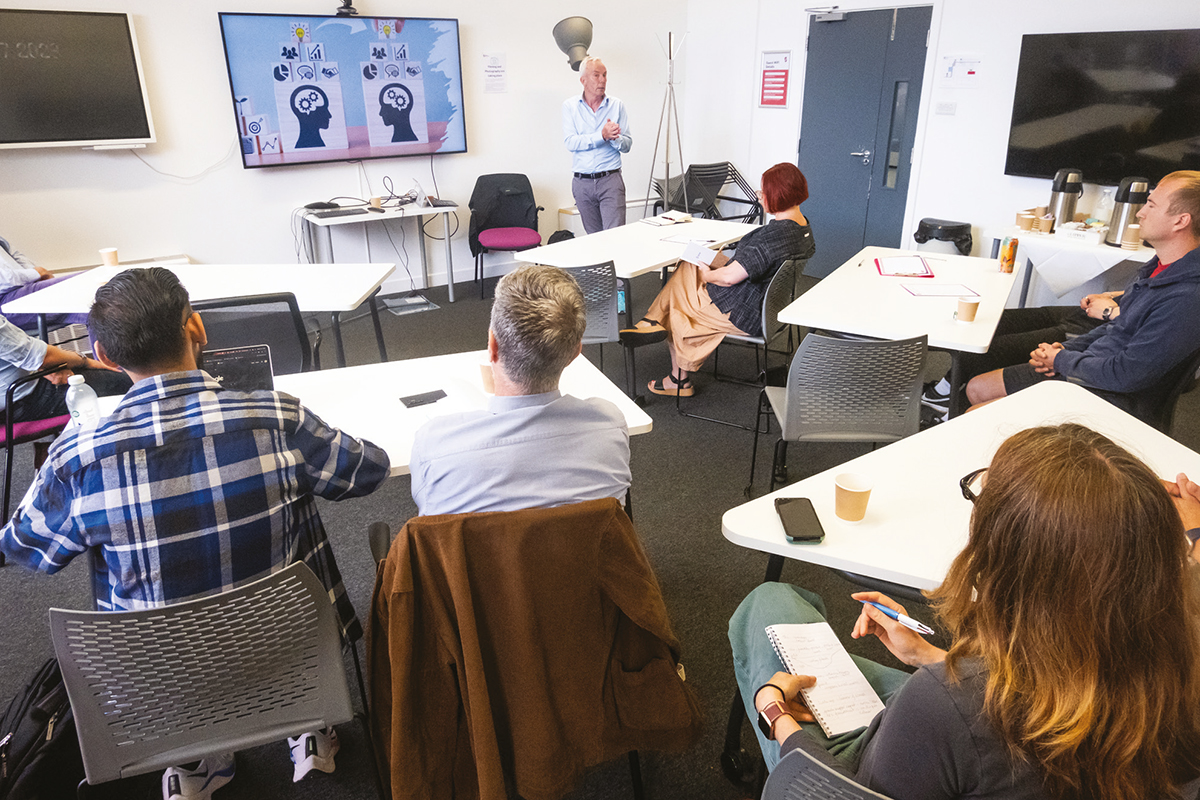
As part of this summer’s programme of Knowledge Hub events, Sussex Innovation welcomed Gary Kendall, founder of member company CDO2, and Les Gill, Innovate UK Edge advisor to share their experience of how to position your business for grant funding. Here are a few of the key insights they highlighted
With debt and equity funding harder to come by in the current economic climate, grant funding is becoming an increasingly attractive option for technology and knowledge-based businesses. However, for many small and micro-business owners, it can also be a confusing space to navigate.
It might seem like grant funding is only an option for larger and more established SMEs, but there are plenty of opportunities if you know how to position yourself to capitalise on them. There are many different types of grant funding available to SMEs, with the government providing £172 billion for grants in the last two years alone.
At July’s Knowledge Hub event on Securing Grant Funding, Sussex Innovation tenant Gary Kendall, director of CDO2, spoke about his experience of applying for grants. CDO2 is a leading innovator in current density imaging – working alongside the University of Sussex Quantum Technologies Lab, it is developing new technology for applications in electric vehicle batteries, improving range, health and safety. CDO2 and its partners’ work has been partially funded through the Innovate UK Faraday Battery Challenge and the Advanced Propulsion Centre UK.
Gary’s key piece of advice was about the value of good partnerships. Funding bodies - much like private investors – are looking at the qualities of the teams and their ability to deliver the project they are planning. If you can demonstrate that several different partners are involved in your bid, and that they each bring relevant experience and skills, you will be in a much stronger position. CDO2 was particularly successful with its grant applications because of partnering with academic researchers. The experience universities have of working within the framework of public funding can be invaluable in helping to represent a project effectively.
A bid with multiple partners can be a double-edged sword though, as Gary pointed out. As well as demonstrating a breadth of experience, you will need to show a capacity to work well together when required. Spending time working closely on your pitch and understanding each of your roles and responsibilities is essential.
As an advisor for Innovate UK’s EDGE programme, Les Gill has supported Gary with securing new and appropriate funding pathways for CDO2’s projects. Les spoke at length about the “dos and don’ts” of writing a successful grant application, pointing out that many bids fall at the first hurdle, simply because they don’t address the specific challenge that the funding is designed for.
That’s why the most important step for anyone exploring grant funding is to do your research. Take time to understand what is available, from small funding pots designed to support the introduction of new technologies, to major funding competitions that address national policy challenges like decarbonisation, social care or waste management.
At a regional level, it’s worth looking at what your local government and Local Enterprise Partnerships are incentivising through grant funding before pursuing larger opportunities. If you work in a specific industrial sector, it’s also a good idea to understand which regions are prioritising funding for your industry. Sometimes it’s worth partnering with a local organisation to base your project somewhere that will have the necessary skills and resources close at hand.
Writing a funding bid takes a lot of work, and it’s a wasted effort unless you are sure that it is a good fit for your business. For that reason, you need to thoroughly read the scope of the funding and be honest with yourself about whether you are set up to deliver what it is asking for. Not only that, but does it align with your ambitions? If you are going to spend a significant length of time delivering against a bid, it should be one that takes your business in the direction you want it to go in.
Related to this, be sure about the amount of money you’re bidding for. If you ask for too much and can’t demonstrate that the funds are needed, your application is unlikely to be successful. However, Les counselled against asking for too little also. Whilst you might be more likely to succeed in your bid, it could be extremely detrimental to your business if you don’t leave yourself with enough capital to deliver the project’s intended outcome.
Finally, be prepared to ask for advice. You can speak to a dedicated innovation and growth specialist by contacting Innovate UK EDGE, who’ll offer honest feedback on which forms of funding are right for your business requirements.





